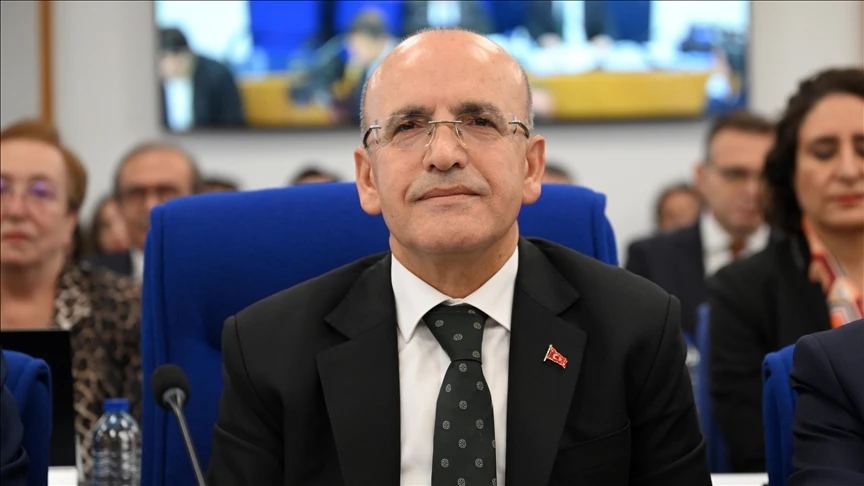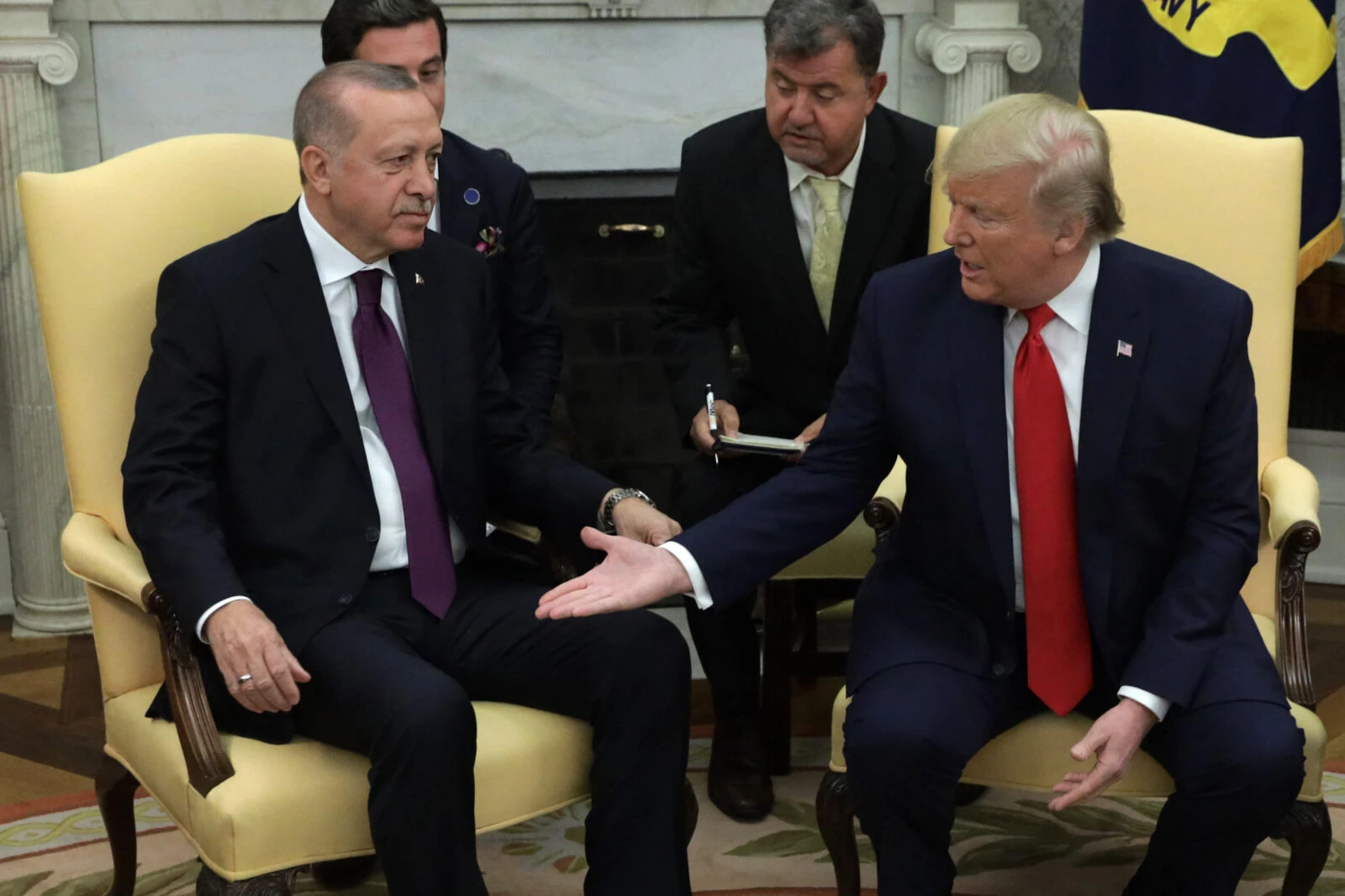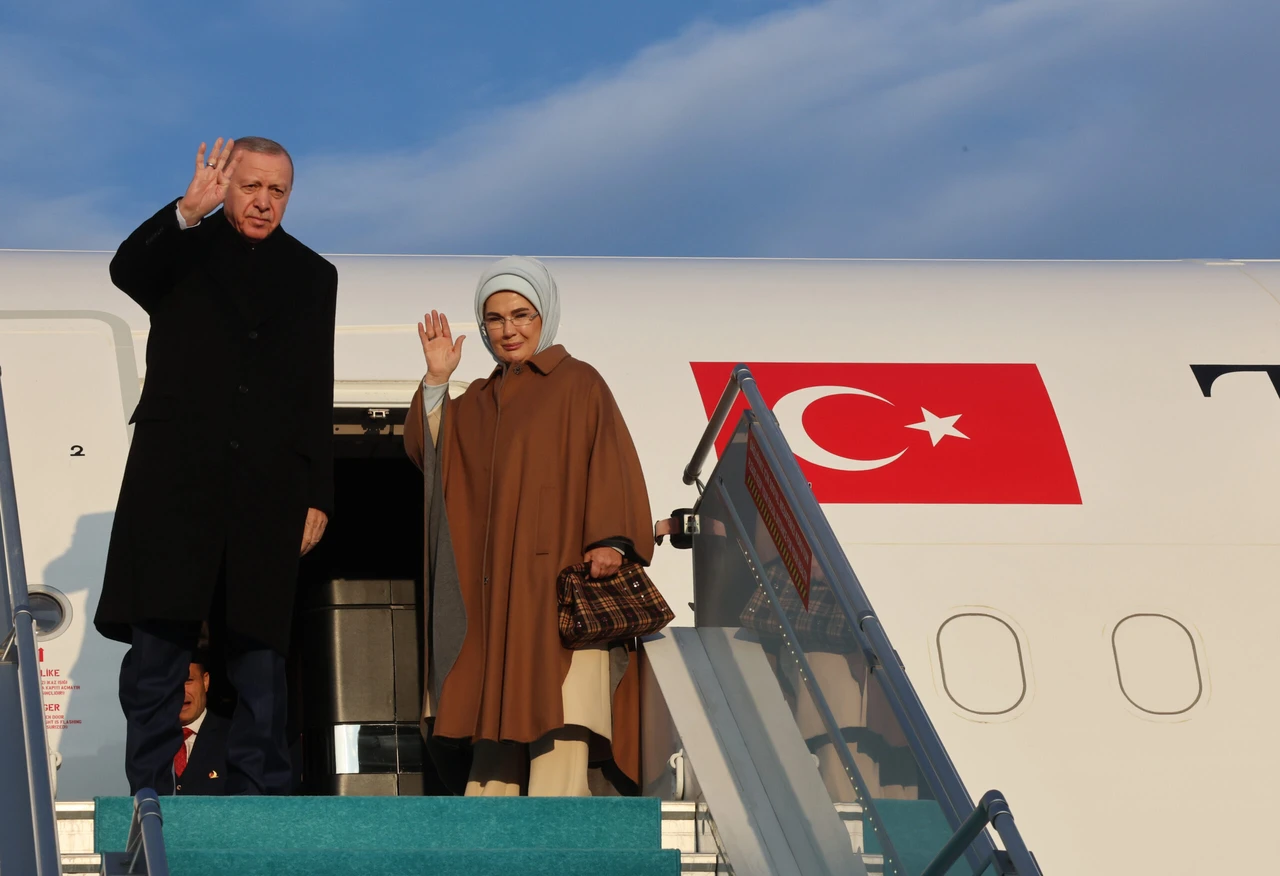‘Trump tariffs won’t have major consequences on Türkiye,’ says finance minister
 Turkish finance minister Mehmet Simsek during budget discussions at the Turkish Parliament in Ankara, Türkiye, on Nov. 15, 2024. (AA Photo)
Turkish finance minister Mehmet Simsek during budget discussions at the Turkish Parliament in Ankara, Türkiye, on Nov. 15, 2024. (AA Photo)
Türkiye’s Treasury and Finance Minister Mehmet Simsek downplayed the potential consequences of tariffs imposed by U.S. President Donald Trump, stating, “The tariff increases announced against China so far are not dramatic, not at a level that would produce major consequences.”
Simsek noted that, while the tariffs might have indirect effects on Türkiye, he did not yet anticipate the implementation of specific protectionist measures against the country.
Speaking in a live broadcast on Saturday, Simsek assessed the latest developments on the economic agenda.
Regarding Trump’s presidency, Simsek remarked that certain policies of the new U.S. administration had created uncertainty and concern among the global markets. However, he emphasized that direct risks for Türkiye were minimal, stating, “The risks are very low—almost negligible. Türkiye does not have a free trade agreement with the U.S. Our President Recep Tayyip Erdogan and the U.S. President Donald Trump have a good dialogue and relationship.”

Pursuing a ‘lasting solution’ to inflation
Addressing inflation, Simsek stated that substantial progress had been made and that January’s inflation data did not disrupt their economic strategy or expectations.
He acknowledged the public’s concerns over the rising cost of living, saying, “People are right to complain about high prices. Inflation is like an unfair tax—it disproportionately affects those on fixed and low incomes and disrupts income distribution. That is why, from a macroeconomic perspective, inflation is a significant problem. We are committed to fighting inflation seriously. Citizens should rest assured that we are seeking a lasting solution.”
Simsek reiterated the government’s determination to phase out the foreign exchange-protected deposit (FX-protected deposit) scheme, announcing that the program for corporate accounts would be terminated in the first half of the year.
“We have made FX-protected deposit unattractive, and it has been declining uninterruptedly for 76 weeks. If necessary, we could take immediate action today, but we prefer a gradual transition,” he said.
He also highlighted a significant increase in foreign interest and capital inflows since March last year, reporting a $130 billion rise in Türkiye’s net reserves, excluding swaps.
Simsek noted that approximately 80-85% of the reserve increase resulted from domestic portfolio adjustments, attributing this growth to changes in portfolio preferences among citizens and companies, as well as medium- to long-term foreign borrowing by Turkish companies and banks.



